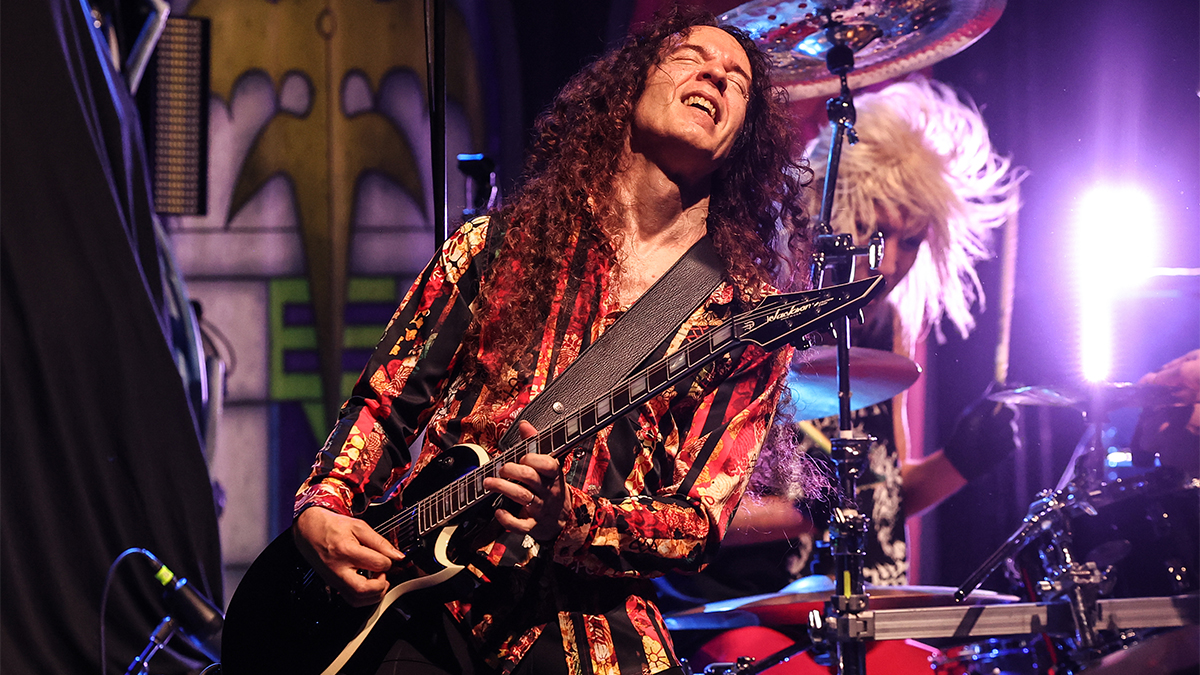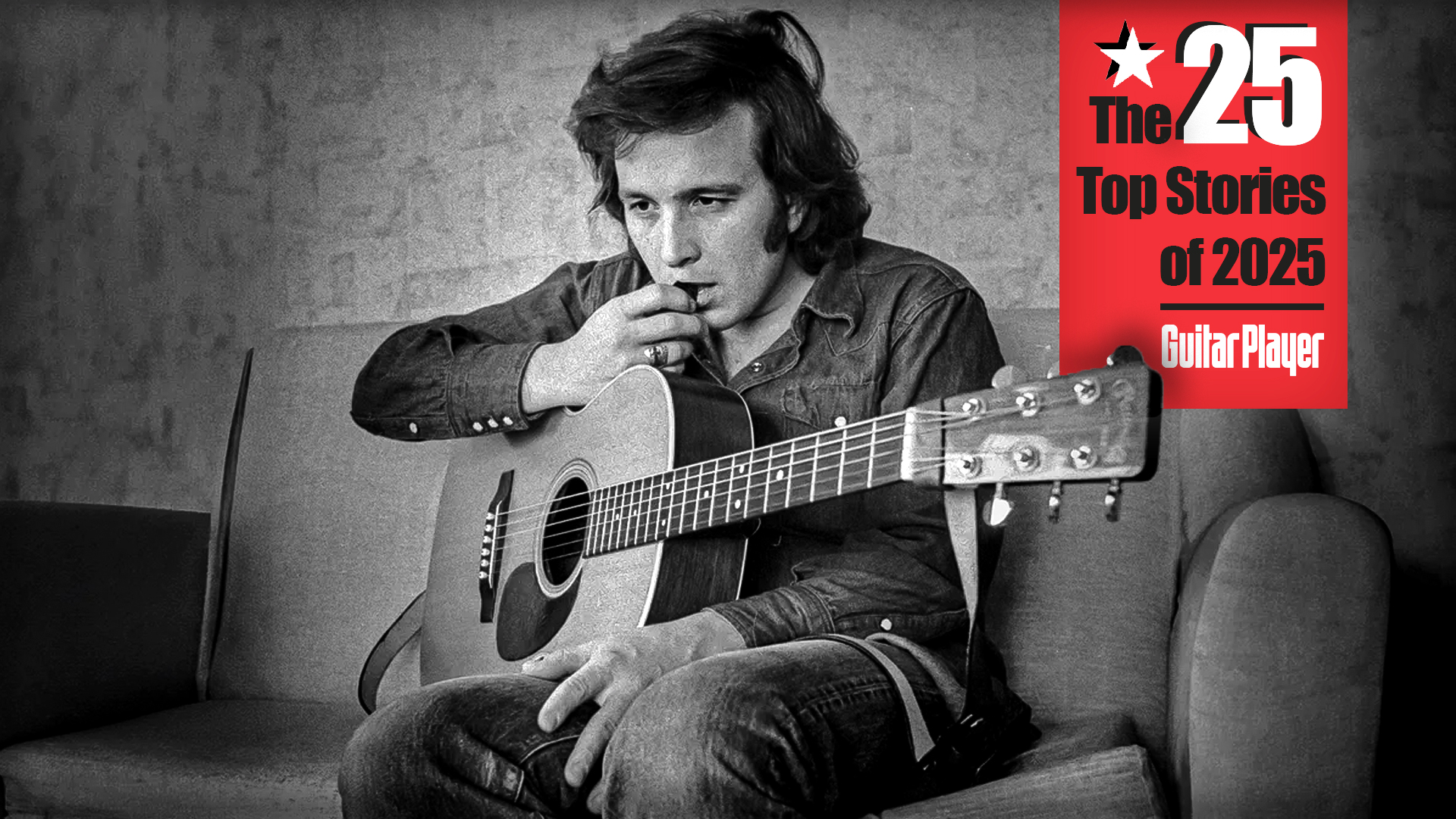"Doing that is far more beneficial to my end goal.” Marty Friedman explains why he doesn't practice guitar at home — and why you shouldn't either
The guitarist pushes live performance over practice, saying, "If you go out and do the real thing, you're going to get good at doing the real thing.”

Marty Friedman’s résumé is glittering. After shredding his way into the limelight alongside Jason Becker in Cacophony, he proved a vital figure in Megadeth’s most successful period and has since made it big in Japan. So it may seem surprising that he’s downplayed the importance of practice in a new interview. But there is logic to be found by digging beneath the headline.
Speaking to Ultimate Guitar, he’s revealed he hasn’t “practiced in probably three decades,” because the regularity and nature of his playing doesn’t necessitate it.
“I'm playing guitar so incredibly much, all of the time: Either performing, writing, rehearsing, recording. As soon as we get off the phone here, I'm going to be doing a video for a guitar magazine in Japan, where I'm playing a bunch of stuff from my Drama album," he says, referring to his 2024 release.
“Doing that stuff is so much more beneficial than any kind of other practice,” he continues. “Everything that I always say about this can be related to sex in some way: If you practice at home, you're going to get good at practicing at home. If you go out and do the real thing, you're going to get good at doing the real thing.”
Friedman admits he's “very lucky,” to have been playing, and playing regularly since his midteens. Guitarists like Tom Morello have previously spoken about practicing eight hours a day to hone their craft, but Friedman sees it as a matter of patience and longevity; of life experience over anything else.
“All I've been doing since then,” he says, “is creating music and performing it, and oftentimes having to explain it, whether it be guitar seminars or music videos for instructional things. So, I have to know exactly what it is I'm doing.”
Indeed, he’s very much ‘living it’ far away from the confines of his bedroom.
All the latest guitar news, interviews, lessons, reviews, deals and more, direct to your inbox!
“I just did a new music video for the song 'Tearful Confession,' and when they're showing your fingers, you’ve got to know exactly what it is you're playing on that record.
“My music is very, very nuanced, so it took quite a bit of work to get my fingers exactly the same. Doing that is far more beneficial to my end goal than practicing. I wouldn't even know what to practice. So I recommend this to people.”
It’s sound advice, but in an age when many guitarists are often making their names via social media clips alone, rather than following the traditional ‘join a band’ route, it may not be wholly applicable to all. Luckily, he has an answer to that.
“Your top priority has got to be creating opportunities to play in front of people,” he underlines, “that is going to suit your end goal much better.
“[During the] course of doing that, you will develop, believe me. When you have a gig in front of people, whether it be a guitar seminar, or a concert, or a music video, you're going to work on the material for that so much harder than you would sitting at home with no goals.”
Friedman’s trail-by-fire methodology for getting better was best tested when Megadeth were recording 1990’s seminal thrash record, Rust In Peace.
“I remember walking into the studio and wading through the miles of two-inch tape all over the floor, he tells GP about his "Hangar 18" solos. [Co-producer] Mike Clink said, ‘Check out the lyrics of this song. It's about aliens and Martians, so play something that sounds like you are coming from outer space.’”
The solo that followed is one of metal's greatest guitar solos, and Friedman feels it wouldn't have come to pass if he never left his bedroom.
A freelance writer with a penchant for music that gets weird, Phil is a regular contributor to Prog, Guitar World, and Total Guitar magazines and is especially keen on shining a light on unknown artists. Outside of the journalism realm, you can find him writing angular riffs in progressive metal band, Prognosis, in which he slings an 8-string Strandberg Boden Original, churning that low string through a variety of tunings. He's also a published author and is currently penning his debut novel which chucks fantasy, mythology and humanity into a great big melting pot.



